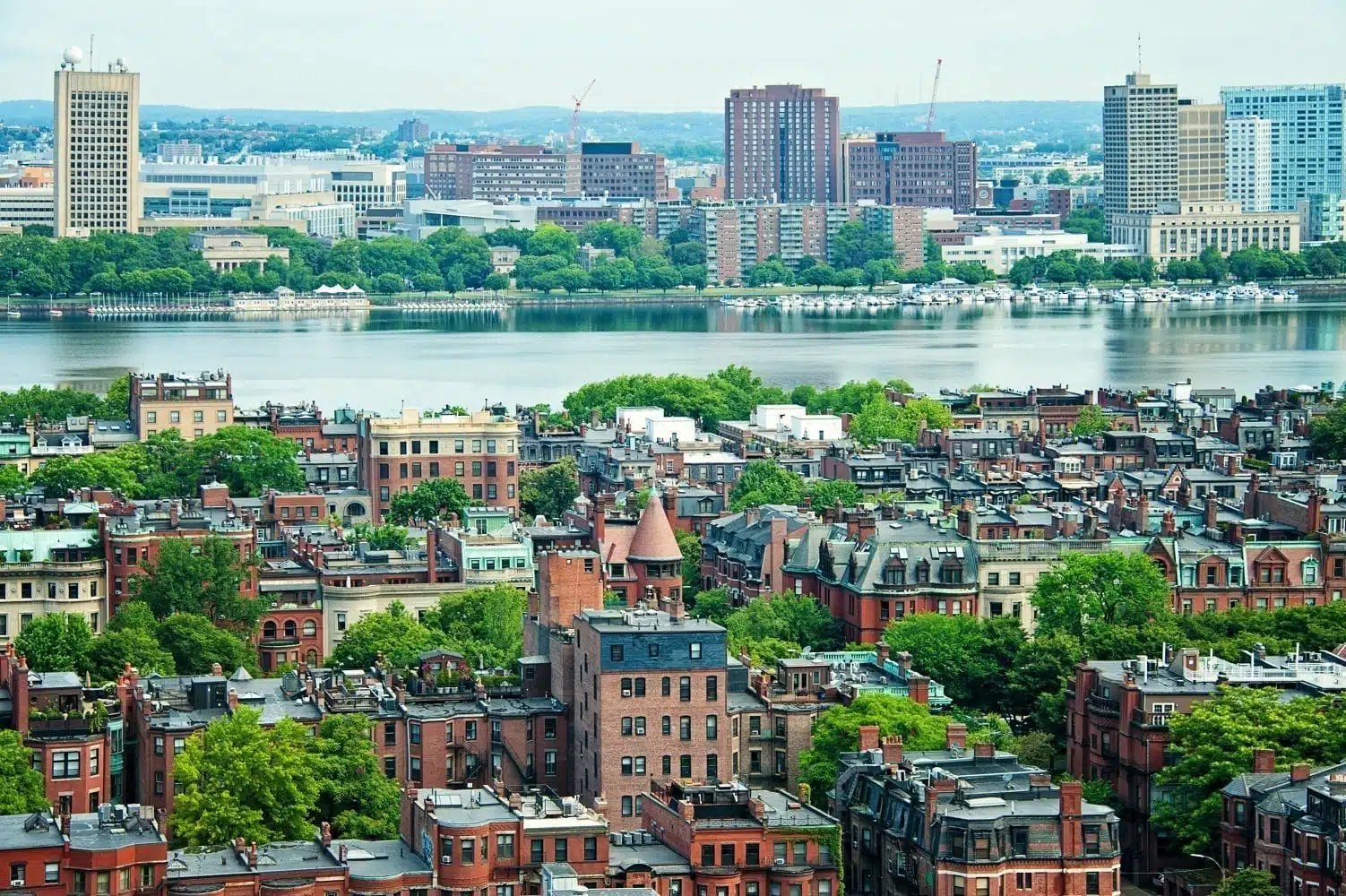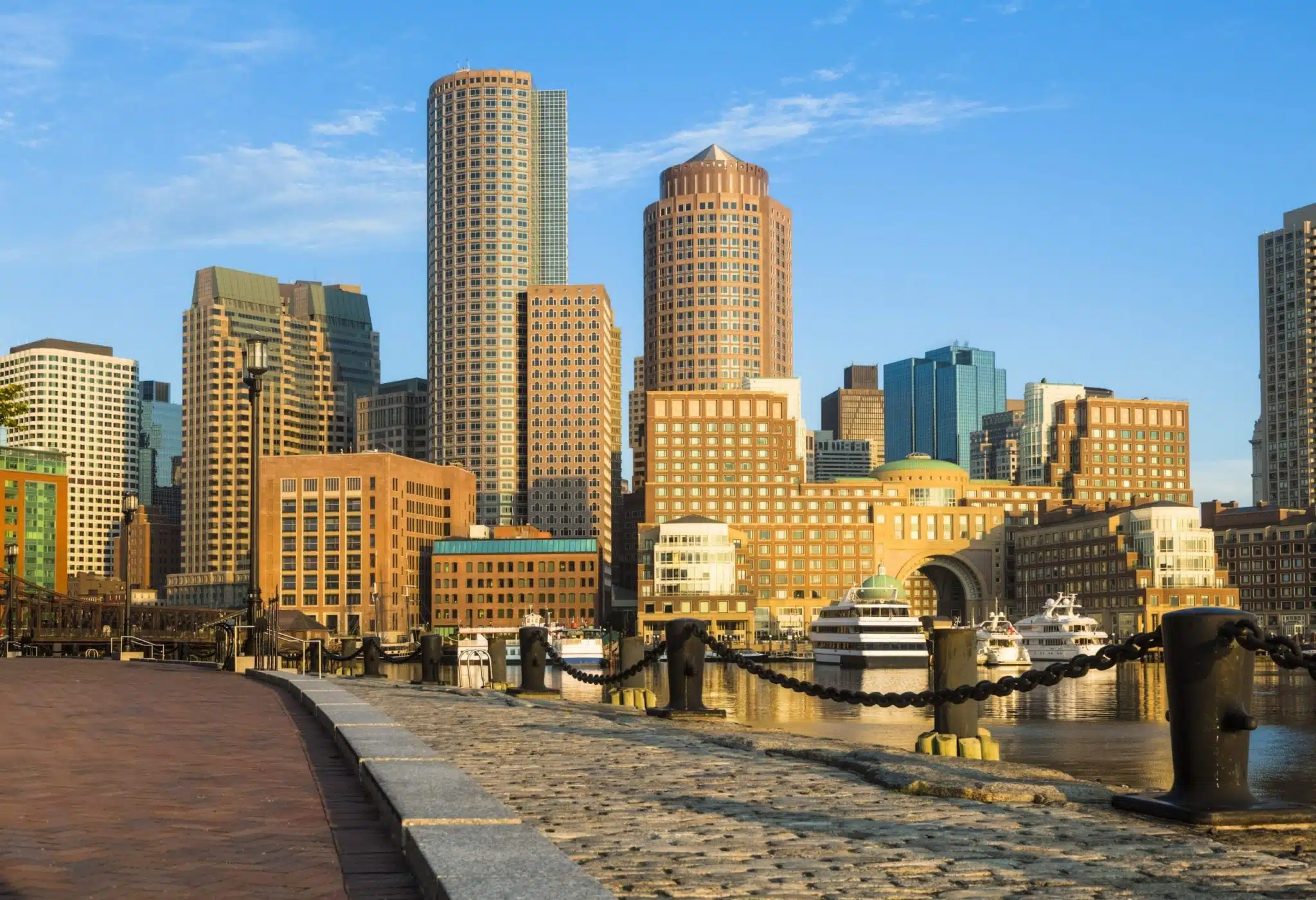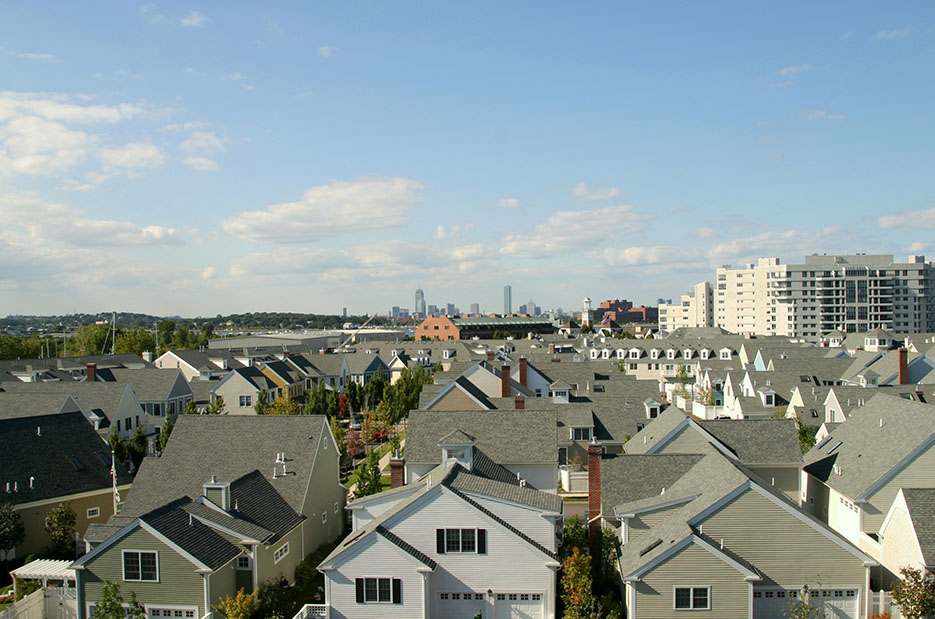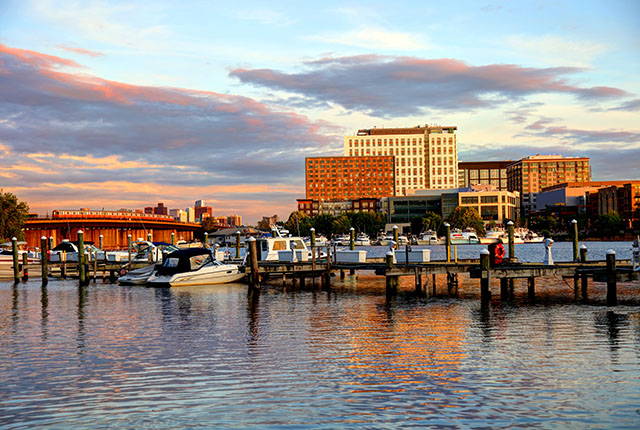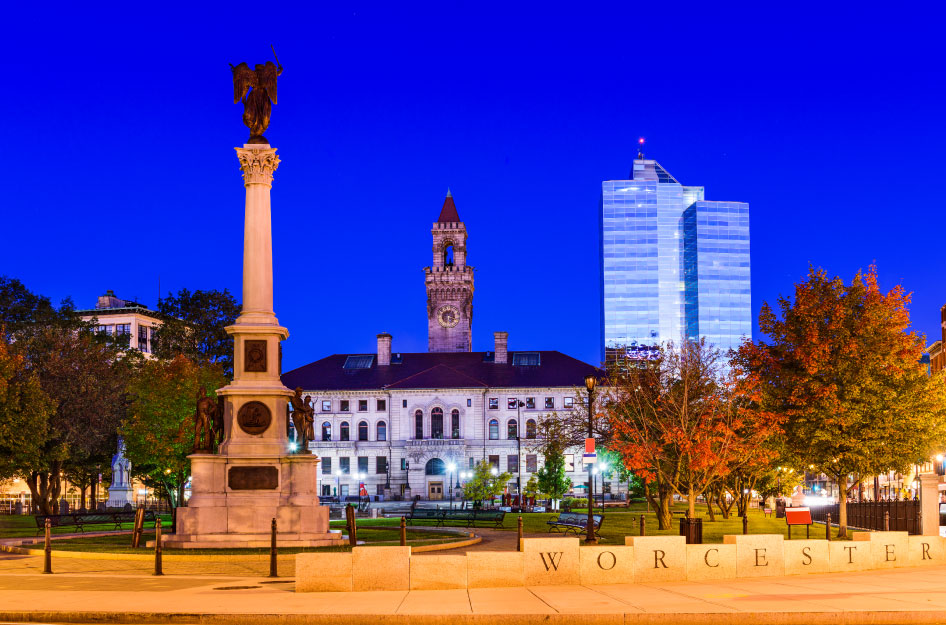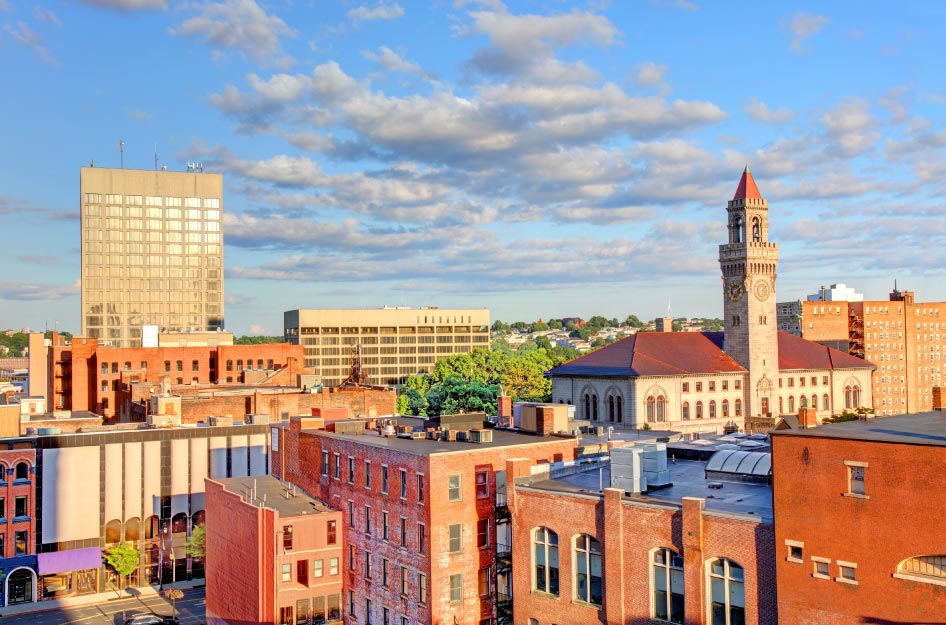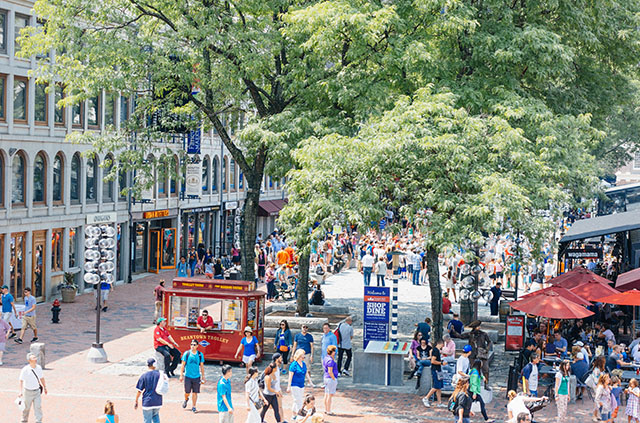
| Planning a move to Boston? Start by getting a quote from PODS. |
Fun Facts You Should Know About Boston
- Boston is named after a town in England, and the settlers who came from there decided to keep the original name.
- The first ever Dunkin’ Donuts existed in the city of Quincy, which is just over 10 miles away from Boston.
- Harvard University, founded in 1636, was the first college in North America.
- The Boston Cream Pie, the official dessert of the state, was created at a local hotel called the Omni Parker House.
- Revere Beach, established in 1896, was the country’s first-ever public beach.
- The total population of Boston is right around 654,400.
20 Pros and Cons of Living in Boston
As one of the best cities to settle down in the U.S., there is a lot to love about living in Boston. Before moving somewhere new, though, it’s still important to become familiar with the cons along with the pros to get a full picture and decide if the city is really for you. Here are some pros and cons of living in Boston we think you should consider.
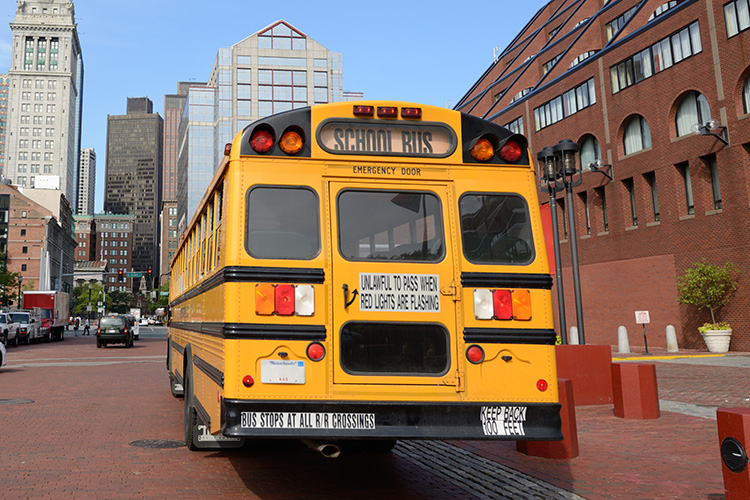
Boston is renowned for its higher education, including MIT and Harvard. But its public K-12 schooling is also top-notch.
1. Pro: You’ll Have Access to Top-Notch Education in Boston.
Boston is known for its top universities — like Massachusetts Institute of Technology and Harvard University — but this region is home to many of the world's leading institutions that are known for their academic excellence and innovation. They provide residents with access to a wide range of cultural events and cutting-edge research. These establishments also contribute to the city's job market by attracting highly skilled workers.
2. Con: The Winter Weather Can Be Harsh.
The harsh winters in Boston can be very challenging for residents. Cold temperatures and heavy snowfalls can result in issues such as disrupted daily routines and higher heating expenses. Snowstorms can also lead to shutdowns within the city, which will sometimes last for days at a time. If you’re moving from somewhere that has a warmer climate, get ready and be prepared for the wrath that the Boston winters will bring!
3. Pro: There Are Plenty of Picturesque Outdoor Spaces.
The city of Boston has plenty of green spaces and parks that provide residents with a place to escape from the hustle and bustle of busy city life. One of these is the Boston Common, which is the oldest public park in the country and filled with beautiful paths for walking.
Frederick Law Olmsted's creation, known as the Emerald Necklace, is a series of interconnected parks that encircle the city. These green spaces not only enhance the area's beauty but also provide ways for residents to stay active and take the time to enjoy some fresh air, whether it be during a work break or a weekend stroll.
4. Con: Navigating the City By Car Is Not for the Weak.
Even the best drivers might be discouraged from driving in Boston due to the high costs of parking and limited spaces. Besides that, traffic is common and the streets of the city aren't exactly the easiest to navigate. Its winding streets and colonial past aren't designed to handle modern traffic demands, which typically results in lots of congestion. Those driving into the city often for work or other reasons can usually expect to deal with delays. Getting to the city center from the suburbs can be particularly challenging due to the high volume of traffic during rush hour, which is why a lot of residents prefer to commute through the MBTA instead of using their own cars.
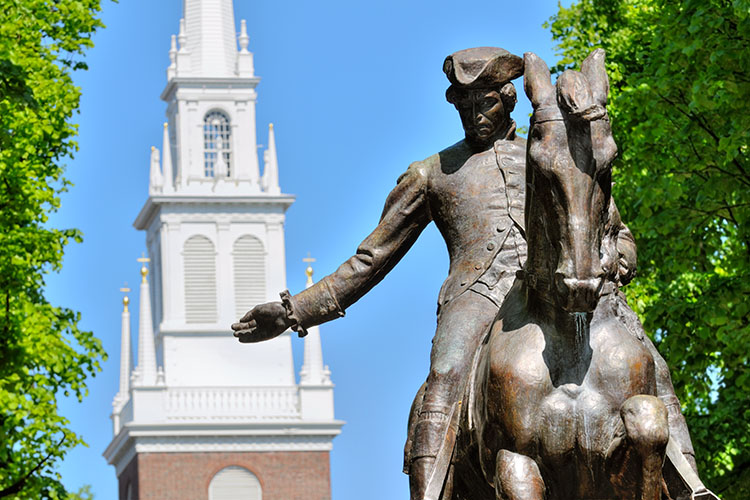
Boston is the birthplace of the American Revolution, and memorials dot the cityscape to honor it.
5. Pro: Boston Has a Vibrant History and Cultural Scene.
The city has a wide variety of historical sites and landmarks, including the Freedom Trail, the Black Heritage Trail, and Fenway Park. Boston played a significant role during the American Revolution, and it continues to celebrate its history through various festivals and reenactments occuring every year. Events like the Boston Heritage Festival educate residents about the country's roots, while other events like the Boston Arts Festival help showcase the performing arts scene of the community over the years, which is a major draw for many visitors, as well.
You can also visit the Boston Tea Party Ships, an interactive historical experience dedicated to the taxation protest known as the “Boston Tea Party” — you can even become a Son of Liberty by throwing tea into the Boston Harbor!
6. Con: There’s Always Congestion of Tourists and Students.
Due to the city's history, residents are used to seeing tourists in Boston. However, during the warmer months, the visitors really ramp up. It's not uncommon to encounter groups of tourists on tours or getting on a crowded train to explore the various attractions of the city. In certain areas, especially those close to college campuses, you may also encounter issues relating to noise with all the students. The Green Line of the Massachusetts Bay Transit Authority may be particularly overcrowded at certain stops due to the large student population.
7. Pro: You Can Rely on Walkable Streets and Quality Public Transportation.
Although it isn't considered to be one of the biggest cities to live in the U.S., Boston still takes up a decent amount of space at approximately 48.4 square miles in size. Its small-town feel and highly walkable environment (a 99 out of 100 and a “walker’s paradise” according to WalkScore!) make it an ideal place to live for those who prefer not to have a car.
One of the most important advantages of living in Boston is its subway system, which is commonly used by commuters to get around the city. The MBTA, also known as the "T," provides routes into the suburbs and neighborhoods that make up Boston.
8. Con: The Boston Cost of Living Is High.
One of the biggest disadvantages to living in Boston is the high cost of living, which is close to 20 percent higher than the state average and more than 50 percent higher than the national average.
When it comes to the cost of living factors, housing is one of the highest costs in the city. You can save money on rent and housing prices by living with a roommate or moving to a cheaper area outside of the main business district; however, you can still expect a decent amount of your salary to go toward rent and any other housing expenses.
While Boston has an average home value of around $750,100 — close to New York’s average — other cities in Massachusetts, like Lynn, have average home prices closer to around $555,300. The average home price in the U.S., on the other hand, is only around $357,500.
Looking at annual salaries for Boston, a single adult would need to make more than $62,500 before taxes to live comfortably. For comparison, a single adult living somewhere in New York County would need to make more than $69,000.
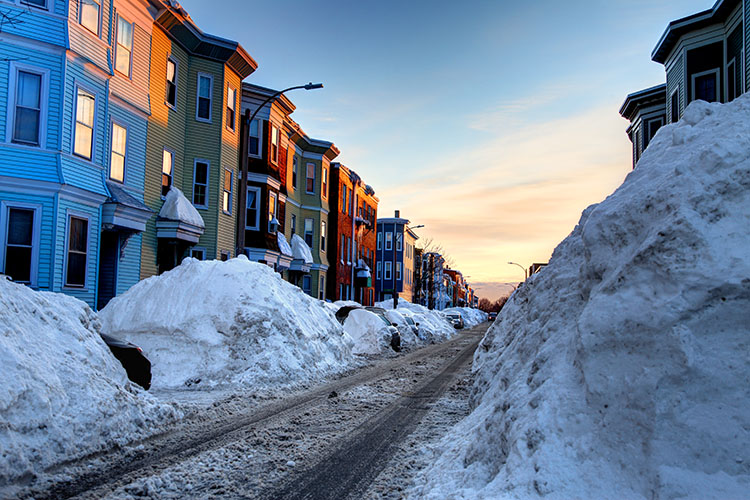
Be ready for ugly, cold winters like this. But gorgeous weather outside of it.
9. Pro: Aside From Winter, You Can Expect Beautiful Weather.
Despite its challenging climate in the frigid winter months, Boston’s other seasons are beautiful. The city experiences summer temperatures that typically range from the high-60s to the mid-80s, and it’s known for its fall foliage. Springtime provides the best of both worlds, with reasonable weather ideal for still engaging in outdoor activities.
You'll be able to enjoy the outdoors in Boston once the winter weather is gone, which is still the majority of the year. The city's public gardens and green spaces are a sight to behold and offer walking paths ideal for staying active.
10. Con: Property Taxes Are High.
Residents of Massachusetts pay more in property taxes than the national average, which makes homeownership particularly costly in the state. The average effective tax rate in the state is 1.12 percent, compared to the national average of 0.99 percent. These elevated taxes contribute to the state's high cost of living.
11. Pro: Boston Has a Booming Economy.
If you're moving to Boston, you have a good chance of succeeding in your career due to the city's robust economy and skilled workforce. Since it is an economic hub of New England, many prominent companies are moving to the area due to its high-quality education system.
Besides job opportunities within the city's education system, residents of Boston have plenty of other opportunities to choose from among different sectors. Boston is known for its flourishing financial, healthcare, IT, and life science industries, for example, and some of the prominent companies that are currently based in Boston include Liberty Mutual and Fidelity Investments (since 1946!).
12. Con: You’ll Experience Less Daylight in Boston.
Those who move to Boston should know that during the winter season, the sun will start to set as early as 4:00 p.m. This means that residents will have limited daylight, which could lead to some issues. This can negatively affect the mental health of the city's residents, especially those who suffer from seasonal affective disorder.
Those who reside in northern areas in Boston may even be deficient in vitamin D due to the lack of sunlight in the colder months. This could result in conditions such as heart problems and brittle bones.
13. Pro: Sports Fans Can Unite.
Bostonians are known for their passion for sports. They are quite fanatical about their various professional teams, including the Red Sox, the Bruins, the Patriots, the Celtics, and the Braves. One of the best ways to connect with the community is by watching a sporting event at Fenway Park. Even people who aren't passionate about sports can easily enjoy the atmosphere — and the food offered, of course!
14. Con: Residents Can’t Enjoy Happy Hours.
Happy hours and drink specials have been prohibited in Massachusetts since 1984. The reason was reportedly due to the high number of fatal and injury accidents involving intoxicated drivers. Therefore, it is illegal for bars to offer discounted or free alcoholic drinks to their customers in Boston. This rule has been in place for a long time, and while there have been discussions about overturning it, there has been no definitive action.
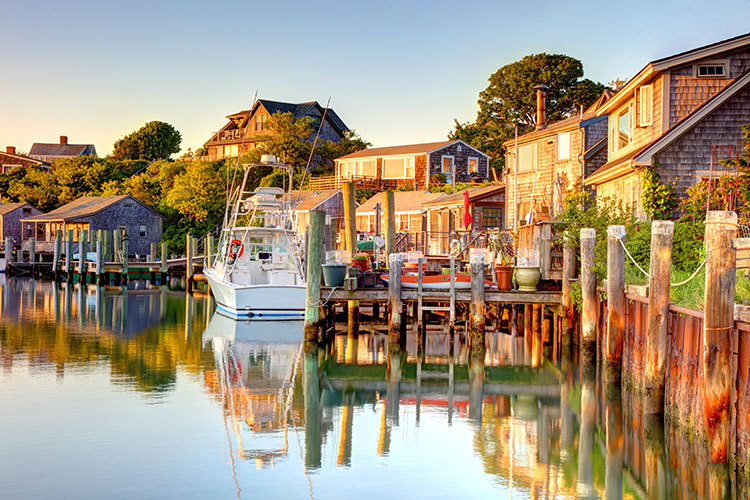
Cape Cod is regularly a popular city near Boston for weekend trips
15. Pro: You Can Easily Travel to Nearby New England Hotspots.
Aside from being a great place to live, Boston also has plenty to see and do outside of the city. For instance, during the summer months, the city dwellers often flock to Cape Cod. During the winter, many residents living in Boston will head to the snowy peaks of New Hampshire, as well.
One of the most interesting places to visit right outside of Boston is Salem, Massachusetts. This city has plenty of history (ever heard of the Salem Witch Trials?) and is a great place to take the whole family — especially on Halloween. Another great place to visit just 2 hours away is Portland, Maine, which offers plenty of sights to see and more great seafood!
16. Con: Rent Prices Aren’t the Only Issue You Will Encounter When Looking For Housing.
Those looking to rent an apartment in the city of Boston should know that the process can be incredibly complex, and it goes beyond having to pay high rent prices. Due to the high number of students in the area, the lease term for most apartments typically begins on September 1. This means that there is a lot of competition for these types of spaces, and there are a good number of fees involved in securing a place. If you are planning on moving to the city anytime after the period of September 1st, you might not find what you're looking for.
17. Pro: It’s a Foodie’s Paradise.
Besides its famous chowders, Boston also has a lot of other great seafood options, including lobster rolls and sushi. Other city specialties such as pizzas and roast beef sandwiches are also popular. There are other types of food in the city, of course, that are from different regions of the world, such as the Italian food in North End and Chinese in Chinatown.
When you're looking to try the best options the city has to offer, first try one of the cannoli options from the North End, such as Mike's Pastry. Then, sample the pizza from the original location of Regina Pizzeria. And for the best seafood experience, head to ROW 34, a modern seafood restaurant located in the heart of Boston.
18. Con: Don’t Expect To Be Out All Night.
Even though the city is filled with college students, there’s a time restriction for bars: All bars are expected to close by 2 a.m. Public transportation often stops around that time, as well (usually around 1 a.m., but definitely by 2 a.m.).
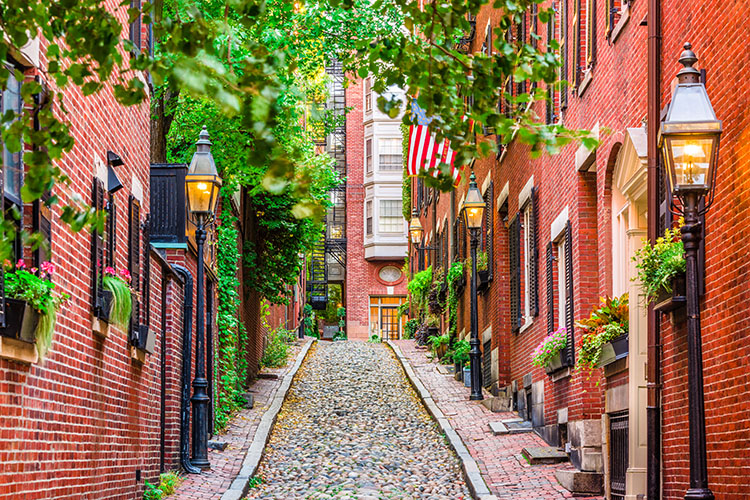
Classic, beautiful architecture can be found throughout Boston
19. Pro: The City Is Filled With Beautiful, Historic Neighborhoods.
Boston has over 20 neighborhoods that are characterized by their own unique charm and perks. The most beautiful areas of the city are typically considered to be the Back Bay and the Beacon Hill neighborhoods, which are known for their historic architecture and scenic parks. The wealthiest part of the city is the Beacon Hill neighborhood, which is full of beautiful brownstone homes surrounded by lots of shopping and places to eat. Little Italy in the North End has the best cannolis and Italian food, while sports fans will enjoy living in Kenmore and Fenway near Fenway Park.
20. Con: Sometimes All the Walking Can Get Annoying.
This could be either a positive or a negative thing about living in Boston, as generally most residents appreciate the great walkability of the city. However, available parking lots across the city may not be in close enough proximity to your place of work, which can cause you to have to walk longer. And while walking is a lot more manageable in the warmer summer months, the winter months can provide a variety of challenges.
Boston may provide its fair share of disadvantages among the pros and cons of moving to Boston, but the lifestyle of the city is still adored and has a lot to offer to further both your education and career. With great historical attractions, a lively culture full of entertainment, high-quality food, outdoor spaces, and sports games, there’s a lot to love about Boston!
Living in Boston — FAQs
Q: What is the downside of Boston?
A: The biggest downside to living in Boston is the steep cost of living.
Q: Is Boston a good place to live?
A: Boston is a great place to live. In fact, it’s considered one of the top 10 best cities to live in the U.S., according to Forbes.
Q: What salary is needed to live comfortably in Boston?
A: A single adult should make more than $62,500 before taxes to live comfortably in Boston.
Q: What are the disadvantages of living in Massachusetts?
A: Along with high property taxes, harsh winters and traffic congestion are among the biggest disadvantages of living in the state of Massachusetts.

PODS has the know-how to help with your Boston move.
Let PODS Help With Your Boston Move
If you’ve gone through the Boston pros and cons and decided to move to the city, let PODS help you get there. They can deliver a portable moving container right to your driveway, where you can pack and load it at your own pace. And once you give the go-ahead, PODS will come pick it up and deliver it to your new place in Boston. PODS City Service — a service made just for big cities — is also available in Boston.

Your quote in 60 seconds
Get pricing tailored to your needs!
